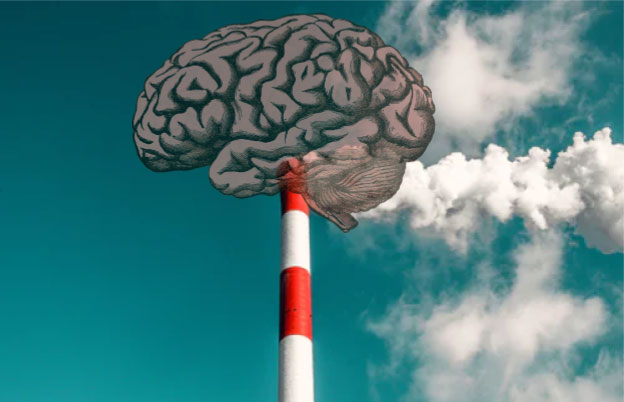Could Pollution Cause Mental Illness in Teens?
November 25, 2019
Research has recently shown that there could be a correlation between air pollutants and mental health issues in young people. According to an article by Environmental Health News, a Cincinnati study finds that teens and children with a higher exposure to air pollutants are more likely to develop mental health issues.
These mental health issues could be developed over the span of a couple of days. Children exposed to these air pollutants are much more likely to develop mental disorders such as anxiety, depression, schizophrenia, and suicidal actions and thoughts. Children and teens exposed to high levels of air pollutants on average visited a hospital or doctor three days after they were exposed.
A study on rodents has shown that air pollutants can cause inflammation and the death of cells in the brain. This may be why air pollutants are linked to psychiatric disorders. There is also evidence that families living in high-stress situations, along with living in places with a high concentration of air pollutants, are much more likely to develop mental health issues.
Other studies have shown similar results. The Department of Mental Health at the University of Cincinnati showed that air pollution produced from traffic, such as car exhaust, can be linked to higher levels of anxiety and depression in young children.
There is also evidence that natural air pollutants such as the smoke from large fires could possibly increase the risk of mental health complications. Living in New Mexico where wildfires are fairly frequent, most children and teens are exposed to wildfire smoke. This could possibly have the same effect as man-made air pollutants and cause serious mental health issues for teens and children in New Mexico.
These studies contribute to the growing evidence that air pollutants could be seriously harming the mental health of children around the world.w


